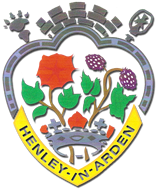THE JPC ARE CONSCIOUS OF THE CONFUSION AND POSSIBLE ALARM AMONGST OUR MORE VULNERABLE RESIDENTS ABOUT HOW THEY MIGHT MANAGE IF HENLEY IS AFFECTED – TO ALL APPROPRIATE LOCAL AGENCIES – PLEASE POST YOUR CONTACT DETAILS AND SERVICES IN THE BOX PROVIDED FOR FOLK TO SEE IF YOU FEEL YOUR GROUP CAN HELP SAFEGUARD VULNERABLE PEOPLE IN HENLEY.
ALL RESPONSES WILL BE SUBJECT TO SCRUTINY PRIOR TO PUBLICATION –
Overview–Coronavirus (COVID-19)
Contents
- Overview
- Advice for travellers
- Common questions
COVID-19 is a new illness that can affect your lungs and airways. It’s caused by a virus called coronavirus.These pages are for the public. There is coronavirus information for health professionals on the NHS England website.
What’s the risk of coronavirus in the UK?
The UK Chief Medical Officers have raised the risk to the public from low to moderate.
Health professionals are working to contact anyone who has been in close contact with people who have coronavirus.
What’s the risk of coronavirus for travellers?
There are some countries and areas where there’s a higher chance of coming into contact with someone with coronavirus.
See our coronavirus advice for travellers.
Symptoms of coronavirus
The symptoms of coronavirus are:
- a cough
- a high temperature
- shortness of breath
But these symptoms do not necessarily mean you have the illness.
The symptoms are similar to other illnesses that are much more common, such as cold and flu.
How coronavirus is spread
Because it’s a new illness, we do not know exactly how coronavirus spreads from person to person.
Similar viruses are spread in cough droplets.
It’s very unlikely it can be spread through things like packages or food.
Do I need to avoid public places?
Most people can continue to go to work, school and other public places.
You only need to stay away from public places (self-isolate) if advised to by the 111 online coronavirus service or a medical professional.
How to avoid catching or spreading coronavirus
Do
- wash your hands with soap and water often – do this for at least 20 seconds
- always wash your hands when you get home or into work
- use hand sanitiser gel if soap and water are not available
- cover your mouth and nose with a tissue or your sleeve (not your hands) when you cough or sneeze
- put used tissues in the bin straight away and wash your hands afterwards
- try to avoid close contact with people who are unwell
Don’t
- do not touch your eyes, nose or mouth if your hands are not clean
Check if you need medical help
NHS 111 has an online coronavirus service that can tell you if you need medical help and advise you what to do.
Use this service if:
- you think you might have coronavirus
- in the last 14 days you’ve been to a country or area with a high risk of coronavirus – see our coronavirus advice for travellers
- you’ve been in close contact with someone with coronavirus
Use the 111 coronavirus service
Information:Do not go to a GP surgery, pharmacy or hospital. Call 111 if you need to speak to someone.
